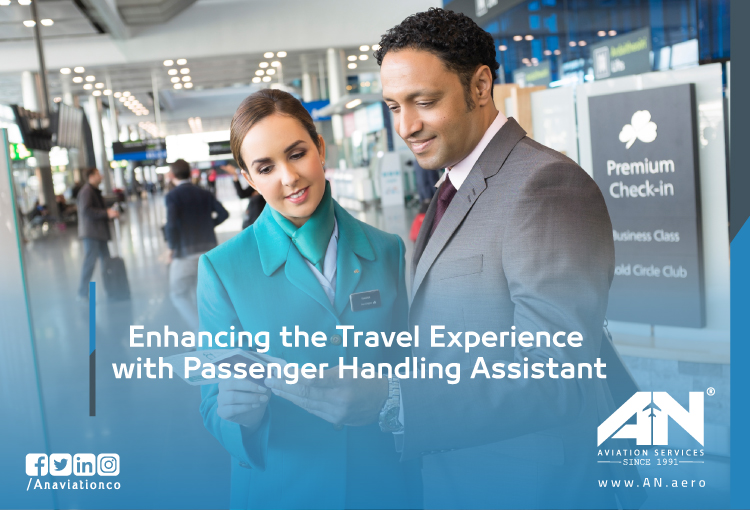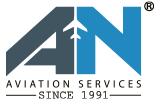
In the bustling world of aviation, ensuring a smooth and pleasant travel experience for passengers is paramount. From the moment passengers arrive at the airport to the time they board their flights, a many of services is in place to assist them every step of the way. In this blog post, we dive into the world of passenger handling services and the necessary role of passenger service assistants in ensuring seamless journeys for travelers of all kinds.
What are the types of passengers?
When it comes to air travel, passengers come in various types, each with their own needs and preferences. Understanding these different types of passengers is essential for providing excellent customer service and ensuring a smooth travel experience for all.
1- Leisure Passengers:
Leisure passengers are those who travel for recreational purposes, such as vacations or holidays. They often prioritize affordability and flexibility when choosing their flights and are typically more relaxed and laid-back during their journey.
2- Business Passengers:
Business passengers travel for work-related purposes, such as meetings, conferences, or client visits. They often value efficiency and convenience, opting for flights that align with their schedules and offer amenities conducive to productivity, such as Wi-Fi and comfortable seating options.
3- Families:
Families traveling together often consist of adults and children of varying ages. These passengers require additional assistance and accommodations, such as child-friendly amenities, priority boarding, and seating arrangements that allow them to stay together during the flight.
4- Senior Citizens:
Senior citizens, or elderly passengers, may require special assistance due to mobility issues or medical conditions. They often appreciate extra care and attention from airline staff, such as assistance with boarding and disembarking, as well as comfortable seating options and access to restroom facilities.
5- Passengers with Disabilities:
Passengers with disabilities include individuals with physical, sensory, or cognitive impairments that may require special accommodations or assistance during their journey. Airlines are required to provide accessible facilities and services to ensure that these passengers can travel safely and comfortably.
6- VIPs and Celebrities:
VIPs (Very Important Persons) and celebrities are passengers who require a high level of privacy, security, and personalized service during their travel. They may have specific requests or preferences, such as private lounges, expedited security screening, and VIP handling services.
7- Unaccompanied Minors:
Unaccompanied minors are children who travel alone without a parent or guardian. Airlines have special procedures in place to ensure the safety and well-being of these young passengers, including designated staff to accompany them throughout their journey and assistance with check-in and boarding processes.
By recognizing and understanding the different types of passengers, airlines can tailor their services and amenities to meet the diverse needs and preferences of their customers. Providing personalized assistance and accommodations ensures that every passenger enjoys a comfortable and enjoyable travel experience, regardless of their individual circumstances.
What are Passenger Handling Services?
Passenger handling services encompass a range of essential functions aimed at facilitating a hassle-free travel experience for airline passengers. From check-in procedures to baggage handling and boarding assistance, these services are exactly designed to cater to the diverse needs of travelers. Moreover, special attention is given to passengers with reduced mobility (PRM), ensuring that they receive the assistance they require to navigate the airport with ease.
What does passenger handling do?
Passenger handling encompasses a range of services and procedures aimed at facilitating a seamless travel experience for airline passengers.
- Check-in Assistance: Passenger handling staff aid passengers in checking in for their flights, issuing boarding passes, and providing pertinent flight information, streamlining the check-in process and ensuring passengers are well-informed.
- Baggage Handling Services: Staff assist passengers with checking their luggage, ensuring proper tagging and loading onto the aircraft, and aiding in retrieving luggage upon arrival, facilitating a smooth baggage claim process.
- Boarding Assistance: Passenger handling personnel facilitate orderly boarding onto the aircraft, ensuring passengers are seated in their assigned seats and accommodating special needs or requests, contributing to an efficient boarding process.
- Assistance for Passengers with Special Needs: Staff provide personalized support to passengers with special needs, such as those requiring wheelchair assistance or passengers with reduced mobility (PRM), ensuring access to necessary facilities and services for safe and comfortable travel.
What is a passenger service assistant?
A passenger service assistant is a trained individual employed by airports or airlines to provide assistance and support to passengers throughout their journey. These professionals play a crucial role in ensuring a smooth and pleasant travel experience for travelers of all backgrounds.
Passenger service assistant is responsible for a variety of tasks aimed at assisting passengers and facilitating the efficient operation of airport services. They greet passengers upon arrival at the airport, assist with check-in procedures, and provide information about flight schedules and gate assignments. Additionally, they help passengers with special needs, such as those requiring wheelchair assistance or passengers with reduced mobility (PRM).
During the boarding process, passenger service assistant facilitate the orderly boarding of passengers, ensuring that everyone is seated comfortably and safely. They may also assist passengers with boarding passes and provide guidance on navigating the airport terminals.
Passenger service assistant is trained to provide exceptional customer service and are knowledgeable about airport procedures and protocols. They possess excellent communication skills and are able to address passenger inquiries and resolve any issues that may arise during travel.
Overall, passenger service assistant plays a vital role in ensuring that passengers have a positive and enjoyable travel experience. By offering personalized assistance and support, they help to create a welcoming and efficient environment for travelers at airports around the world.
What are the benefits of being a Passenger Service Assistant?
Being a Passenger Service Assistant comes with several benefits that contribute to a rewarding and fulfilling career in the aviation industry. Here are some of the key advantages:
- Customer Interaction: Passenger service assistants have the opportunity to interact with a diverse range of people on a daily basis, providing assistance and support to travelers from all walks of life. This allows them to develop strong interpersonal skills and build rapport with passengers.
- Varied Responsibilities: The role of a passenger service assistant is dynamic and multifaceted, involving tasks such as check-in assistance, baggage handling, and boarding facilitation. This variety keeps the job interesting and allows assistants to develop a wide range of skills.
- Job Satisfaction: Helping passengers navigate the airport and ensuring they have a smooth travel experience can be incredibly rewarding. Passenger service assistants play a vital role in making travel less stressful for passengers, which can lead to a strong sense of job satisfaction.
- Team Environment: Passenger service assistants often work as part of a team, collaborating with colleagues to ensure the efficient operation of airport services. This fosters a supportive work environment where assistants can learn from one another and work together to achieve common goals.
- Opportunities for Advancement: Working as a passenger service assistant can serve as a stepping stone to other roles within the aviation industry. With experience and additional training, assistants may have the opportunity to advance to supervisory or managerial positions.
- Travel Perks: Some airlines and airport authorities offer travel perks to their employees, including discounted or complimentary flights. This allows passenger service assistants to enjoy the benefits of travel themselves, exploring new destinations and cultures.
- Job Stability: The aviation industry is a stable and growing field, providing opportunities for long-term employment and career growth. As long as people continue to travel by air, there will be a need for passenger service assistants to assist them along the way.
How to Become a Passenger Service Agent?
Becoming a Passenger Service Agent involves several steps and qualifications. Here’s a comprehensive guide:
Education and Qualifications:
While a high school diploma or equivalent is typically required, having some post-secondary education or relevant vocational training can be beneficial. Courses in customer service, hospitality, or aviation-related fields may provide valuable knowledge and skills.
Gain Relevant Experience:
Prior experience in customer service roles, such as retail or hospitality, can be advantageous. Experience working in fast-paced environments and dealing with diverse groups of people is particularly beneficial for this role.
Develop Necessary Skills:
Passenger Service Agents need strong communication and interpersonal skills to effectively interact with passengers. They should also have excellent organizational skills and the ability to work well under pressure.
Familiarize Yourself with Airport Procedures:
Familiarize yourself with airport operations and procedures, including check-in processes, security protocols, and boarding procedures. Understanding the ins and outs of airport operations will be beneficial in your role as a Passenger Service Agent.
Apply for Positions:
Keep an eye out for job openings for Passenger Service Agents at airports, airlines, or ground handling companies. You can find job listings on company websites, job search engines, or through networking connections.
Prepare for Interviews:
Once you secure an interview, prepare by researching the company and familiarizing yourself with common interview questions. Be ready to highlight your relevant experience, skills, and qualifications, emphasizing your ability to provide excellent customer service.
Complete Training Program:
If hired, you will likely undergo a training program provided by the employer. This training will cover various aspects of the job, including customer service protocols, airport procedures, and company policies and regulations.
Obtain Necessary Certifications:
Depending on the employer and location, you may need to obtain certain certifications or licenses, such as a security clearance or airside pass. Make sure to fulfill any requirements set forth by the employer.
Continued Professional Development:
Once you start working as a Passenger Service Agent, continue to seek opportunities for professional development and training. Stay updated on industry trends and regulations to ensure you are providing the best possible service to passengers.
Conclusion
In conclusion, passenger handling services and the invaluable contributions of passenger service assistants are essential components of the modern aviation industry. By prioritizing customer service and providing assistance to passengers of all backgrounds, airports can create a welcoming and efficient travel environment for travelers worldwide. Whether it’s issuing boarding passes or assisting passengers with reduced mobility, passenger service assistants play a pivotal role in ensuring that every journey is a smooth and enjoyable experience.

